Meet the 2021 JEDI Champions
The Stanford Postdoc Champions: Community Impact Awards serve to highlight the individual contributions of postdocs whose service fosters belonging and uplifts their communities. These awards provide a democratic way to acknowledge the work of postdoctoral scholars, and amplify the spirit of inclusion and service set by Stanford University.
Displaying 26 fellows
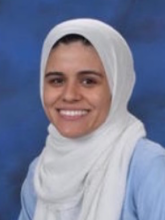
Hoda Abdel Magid
Faculty Mentor:
Lorene Nelson
JEDI should be inherently integrated within our academic spaces, such that we no longer need initiatives, committees, or cluster hires dedicated to championing JEDI in our departments, on our campuses, and in our fields. Spaces that are not just, equitable, diverse, or inclusive inhibit productive and meaningful science. They require time and bandwidth from those most impacted to champion JEDI. It continues to be the most challenging and rewarding part of my growth as a scientist to navigate many academic spaces as the only Muslim-American woman in these spaces. My hope is that one day someone like me – a member of an underrepresented racial/ethnic group in STEM – can contribute to academia without regards to their identity. If they so choose.
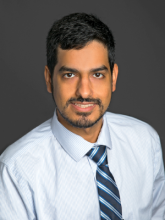
Juan Aguilera Mendoza
Faculty Mentor:
Kari Nadeau
Sean N. Parker Center for Allergy and Asthma Research
Air pollution is attributed to 7-million annual deaths worldwide and adverse health effects. Many are at-risk because of biological reasons (age, health status, pregnancy) but others are at greater risk because of outdated policies, systemic racism, and circumstance. At Stanford, I work with a team researching the impact of air pollution in at-risk groups given the prevalence of fire smoke in the U.S. and the increasing burden from climate change. Through our work, we aim to reduce air pollution exposures and associated health risks, develop better communication strategies, and support actions among at-risk groups. Together we can promote meaningful changes.
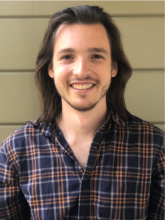
Evan Angelico
Faculty Mentor:
Giorgio Gratta
All people deserve to experience and contribute to physics regardless of identity or economic status. I love this beautiful science, and will work to remove the culture of exclusivity, racism, and inequity in physics so that others can share that love. The nEXO experiment’s mentorship program gives students an easy avenue for making role models, and encourages those mentors to empower students that may not share their same background or race. I want to promote a welcoming, happy community of diverse identities and perspectives so that we can work together to solve difficult problems we face in society and science.
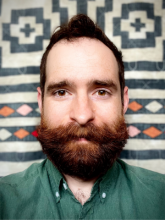
Eamon Byrne
Faculty Mentor:
Karl Deisseroth
JEDI work is community work. JEDI work is internal work. Nothing can change without the support of those around you. Nothing can change without you changing yourself.
All that I’ve learned in this space has been from working with and listening to others. Listen to Black women. Listen to indigenous femmes. Listen to queer, trans and gender non-binary people. Listen to people who live with a disability. (Not an exclusive or exhaustive list.)
It is an honor and a privilege to be in coalition with others who are also working towards our collective liberation. The CCC&AOP program has been and continues to be a hugely important source of both inspiration and motivation for me. I am also fortunate to work with incredibly passionate, service-minded people within SURPAS.
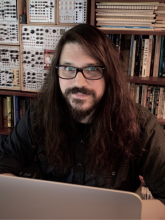
Alex Chechile
Faculty Mentor:
Chris Chafe
The impact of music and the arts on health, society, and culture are numerous and well documented. During a time of social isolation, equipping educators, students, and individuals with accessible technology for real-time remote music and art provides a means for empowering cultural change and promoting social justice. By hosting a series of free online workshops and seminars, we formed a community of educators working towards expanding diversity, equity, and inclusion using remote technology and creative practices. As in-person teaching resumes, we can continue working towards our goals through co-located concerts and exhibitions between classrooms worldwide.
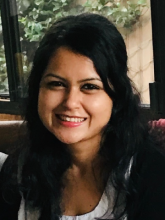
Rohini Datta
Faculty Mentor:
Jin Billy Li
Through mentorship and scientific outreach initiatives with a commitment to JEDI principles, I strive to counter systemic biases and empower underrepresented and minoritized communities. Outside the lab, I am a science journalist for TheWire.in Science and an avid science communicator - routinely delivering scientific talks to students in my home country, India.
Female role models have inspired me from childhood. Thus, I am passionate about mentoring women and girls in STEM and enabling them to become the next generation of leaders, through various organizations – AWIS, BioSci Connect, etc. As SURPAS Events Coordinator, I promote events that foster inclusion and belonging, such as the Science is Elementary mentorship program.
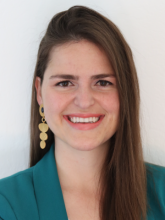
Alejandra Echeverri Ochoa
Faculty Mentor:
Gretchen Daily
I am motivated to create bridges and collaborations between Stanford and Latin American governments, institutions, academics, and local communities, so that we can together find ways to effectively protect natural ecosystems across Latin America. I am passionate about collaborating with members of underrepresented groups so that we can think differently about the problems and the solutions to combat biodiversity loss. I am most proud of the series of webinars that I have coordinated with my colleagues, which we offered in Spanish/English with simultaneous translation. Most recently, we convened a group of actors that would typically not interact, because of the increased effort on translation, interpretation, and recruitment. Being able to reduce language barriers to increase participation in meaningful ways has allowed me to create deep relationships with the Colombian government and with the Costa Rican coffee institute, albeit the pandemic.
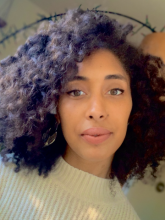
Brielle Ferguson
Faculty Mentor:
John Huguenard
Neurology & Neurological Sciences
Now maybe more than ever, we know that representation is so important, and going years without seeing anyone that looked like me in positions of leadership, and with seeing so few of my peers around me, I often questioned whether this space was meant for me. This story is all too familiar for Black people in STEM, and tackling that isolation by building community remains one of the core motivations behind Black In Neuro.
While a career in neuroscience can be an amazing ride, it will not be without challenges.
My goal as Director of Programs is that through the community we've built and resources we provide for Black scholars is to lessen the likelihood that questioning whether you belong will not be one of them.

Caroline Glidden
Faculty Mentor:
Erin Mordecai
I am a passionate advocate for JEDI and prioritize learning to advocate for and empower my peers in this space. I work to achieve this goal by co-leading diversity and inclusion meetings in the Mordecai lab and compiling resources for JEDI professional development, including guides for best mentorship practices and decolonizing ecology and public health research. My commitment to JEDI requires continuous listening and learning to evolve my practices based on the feedback of individuals with historically excluded identities. I look forward to learning from the Stanford community and striving to increase JEDI for postdocs and students.
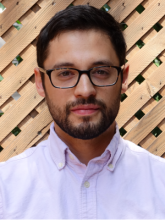
Kamir Hiam-Galvez
Faculty Mentor:
Ansuman Satpathy
English is the “universal language of scientific research” and has facilitated dispersion of scientific ideas. Unfortunately, using a single language to communicate research findings has also acted as a gatekeeper limiting science accessibility in communities for whom English is not the predominant language. This acts as a barrier for immigrant communities in the US and developing countries throughout the world. Most of my past work in the JEDI space has focused on English-language science outreach. Now, I aim to join many like-minded activists aiming to surmount this barrier by developing and disseminating scientific research and educational materials in multiple languages.
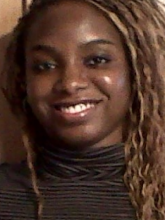
Chinyere Iweka
Faculty Mentor:
Katrin Andreasson
Neurology & Neurological Sciences
Instead of our differences bringing us together, it tears us apart. We hide and live in fear instead of embracing and celebrating ourselves. Meetings to discuss race, equity, inclusion and justice, emails expressing shock and horror about the evil people do on account of race and religion, mean nothing if we follow through with no tangible action. If I can make one person feel respected, accepted and empowered and perhaps pass the feeling along, then I have achieved my goal. Even the smallest acts can make a significant difference.
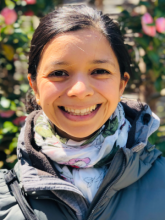
Abby Joya Sarkar
Faculty Mentor:
Roeland Nusse
Through Stanford JEDI work, I have served in different roles including Stanford University Postdoctoral Association’s first advocacy coordinator, Stanford’s Long Range Planning-Education Area Steering Group postdoc representative, and a co-founder of Stanford Development Biology Postdoc Preview Program. In these roles, I have worked with many other JEDI champions to raise awareness and to address a lack of affordability and diversity for postdocs at Stanford through new programs and initiatives. This work has been incredibly rewarding in that it empowers us, myself and others, to connect, to grow and to learn as we work together to build a more just, equitable, diverse, and inclusive environment at Stanford.
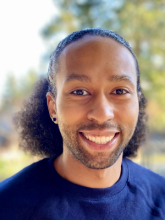
Shahzad Khan
Faculty Mentor:
Suzanne Pfeffer
Throughout my training in the biomedical sciences I’ve tried to “pay forward” the countless mentoring and support I’ve received. I arrived at Stanford in 2018 and shortly thereafter became involved in DEI initiatives lead by the Stanford University Postdoctoral Association (SURPAS). In the past I served as co-chair for the SURPAS JEDI committee, SURPAS advocacy coordinator, and postdoctoral representative for the School of Medicine’s Diversity Cabinet. I’m most proud of my contributions to the Diversity Perspectives Seminar Series and OPA’s postdoctoral recruitment initiative (PRISM).
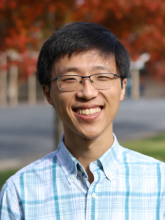
Seungsoo Kim
Faculty Mentor:
Joanna Wysocka
Developmental Biology/HHMI
I am inspired by the many people on campus working to make Stanford more inclusive and supportive, and I strive to amplify and build on these efforts. As co-chair of the SURPAS JEDI committee, I am proud to organize events that aim to build a community for all Stanford trainees to educate, mentor, and support each other. I also serve on the Chemical and Systems Biology and Developmental Biology departmental DEI committees, where I advocate for current postdocs and try to reduce the barriers to a more diverse future postdoc population.
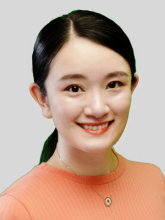
Zhouxuan (Fanny) Li
Faculty Mentor:
Charles Eesley
Management Science and Engineering
I am myself an Asian female, and I changed my academic major from the engineering field to the management field, so I have full empathy when seeing younger researchers, especially international students and female students feel lost, frustrated and weak when pursuing their academic dreams. I just feel obligated to offer help, to help people like me, just like how I received help from other people in my growth.
I am proud that I still have the courage and strength, to fight for something I believe is right and fair. My research work focuses on understanding entrepreneurship in developing countries and crowd-based entrepreneurship tools. I like my research as I can see how it does help the world to become more diverse and more equal.
I am passionate about entrepreneurship education and entrepreneurship itself. For me, creating itself is a process stressing equality and diversity.
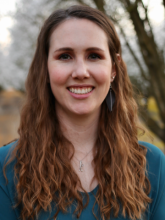
Katherine Lucot
Faculty Mentor:
Thomas Montine
As a first-generation low-income student, I have a great passion for interacting and helping communities in those spaces. I am an active member of Letters to a Pre-Scientist, Skype a Scientist, the New York Academy of Science’s “1,000 Girls 1,000 Futures” programs. Each of these programs help expose kids to science when they most likely wouldn’t normally get this opportunity. I often think of the people who helped me along the way and remember that the key to a more balanced and equitable science space is making space for others and not closing the figurative door after one has been opened for you.
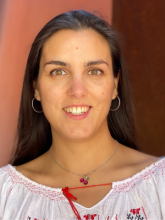
Ioana Marin
Faculty Mentor:
Carla Shatz
"Ioana has been a long-standing advocate for justice, equity, diversity, and inclusion among Stanford postdocs. She founded and chaired the JEDI committee within SURPAS roughly 4 years ago (originally called the Postdoc Diversity Advisory Committee) and spearheaded the creation of the Someone Like Me mentoring program and more recently the Better Ally series, in addition to overseeing the Diversity Perspectives Seminar Series, and interfacing with other student groups to coordinate JEDI efforts across campus. This work has impacted scores of postdocs (120 are currently on the committee’s Slack channel) as well as graduate students and staff who have attended events organized by the committee. Even as she passes leadership of the committee onto the next generation, she continues to help guide the new leadership to ensure its future success. In addition, she serves on the Neurobiology DEI committee. Her work has inspired and empowered many other postdocs like me to take actions to improve the Stanford postdoc community, and I cannot imagine anyone more deserving of an inaugural Stanford Postdoc JEDI Champion award." --- Words from a Nomination Statement for Ioana

Aravind Natarajan
Faculty Mentor:
Ami Bhatt
Hematology
I am passionate about making college education accessible to traditionally under-represented minorities (URMs). Education is a powerful catalyst of socioeconomic mobility with the potential to make the world more equitable. However, access to higher education is limited to those with privilege, and the absence of role models often deters URMs from higher education. To tackle this barrier, I founded and produce a podcast, Science Blender, that captures the lived experiences and scientific endeavors of graduate students with diverse backgrounds. The podcast elevates the voices of these individuals as role models while also appreciating the entirety of their experiences as people and scientists.
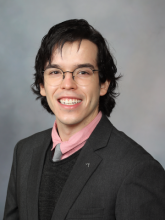
Julio Nunes
Faculty Mentor:
Kenneth Mahaffey
Cardiovascular Medicine
I believe that communication and cultural learning are some of the keys to reduce health disparities and increase the quality of health care and research. It is only by truly understanding and learning from each other that we can really blossom and grow. By increasing the access of culturally diverse populations to the science centers, we welcome new perspectives, ways to communicate, and ideas into our realms and this results in richer outcomes for everybody. Personally, I am proud of being Latin American and am passionate about increasing our representation in clinical trials and access to the health care system. With a population of 25% Latinxs in the Bay Area, little has been done to truly include, celebrate, and support these folks. My goal is to keep this conversation going and ally this passion with Stanford's support so that, little by little, we can change this reality. Thank you Stanford Center for Clinical Research for really embracing this cause!

Caitlyn Seim
Faculty Mentor:
Allison Okamura
"I believe most fundamentally in listening to marginalized and minority groups so that societal forces can be addressed to improve quality of life. A lot of my work focuses on individuals with physical disability such as paralysis or low vision. I understand personally how having a physical disability is like a second full-time job, incurs unearned stigma, and is not widely understood.
In the classroom and in daily life, these additional burdens make high-performing even more difficult to achieve. A similar framework applies to acknowledging the challenges of other minority groups. I aim to address these inequalities first by teaching members of my research team to be inclusive, compassionate, and supportive - using strategies such as amplification and person-centered language. I also work to educate communities on the needs and resources of several underrepresented groups -- such as students with low vision and women in engineering. In my research, I work to develop new technology-enabled treatments to improve hand function after stroke. I am passionate about understanding the needs and wants of individuals with history of brain injury, and I endeavor to improve their quality of life."
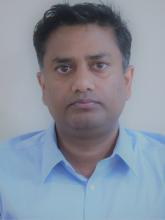
Amin Shakhawat
Faculty Mentor:
Jennifer Raymond
I think it would be wonderful if young generations across the globe get equivalent support and exposure to modern tools and resources to prepare themselves to take care of the world's next big challenges. Hence, I want to act as a facilitator for marginalized groups who need a little extra support to change their life trajectory as well as impact their community in a positive way. I have been involved with many JEDI-related activities, such as being involved in the Stanford Neurobiology department's Diversity, Equity and Inclusion committee, as well as being part of the Bangladesh Neuroscience Society, which promotes neuroscience among the young generation in Bangladesh. I am particularly proud of forming an non-profit organization name Education, Science & Innovation Alliance (ESIA) that aims to help young generations from disadvantageous backgrounds to become next generation leader in their community.
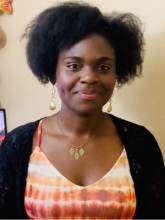
Catherine Tcheandjieu
Faculty Mentor:
Themistocles Assimes
Cardiovascular Medicine
As someone from an underrepresented minority (URM), I want to give back to my community and ensure their voice is heard. I have been motivated by doing work that helps improve visibility and access to resources for URMs in research. One of the efforts I’m proudest of is launching BlackInCardio and celebrating black scientists in the cardiovascular field around the world. At Stanford, I’m particularly proud of the recommendations for recruiting and improving retention of URMs at all levels, particularly at the postdoc level, in the department of pediatrics through my contributions in the recruitment team of SPAARC. I'm looking forward to continuing studying the genetics of cardiovascular diseases in URMs through my research and highlighting the work of black scientists in BlackinCardio.

Bradley Tolar
Faculty Mentor:
Chris Francis
Earth System Science
In my time at Stanford, I am most proud of my work with the SURPAS JEDI committee, oSTEM and LGBTQ+ postdocs group, and working with amazing postdocs and graduate students to launch the Someone Like Me mentoring program. As a gay scientist, I often felt like I did not fit in or belong in many academic and scientific settings. After finding and building a community here among SURPAS and other postdoc affinity groups, it has been my goal to help create and maintain inclusive spaces for others to feel welcome within my lab, department, School of Earth, and across campus.

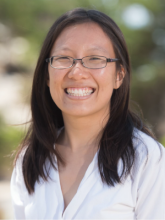
Katherine Xue
Faculty Mentor:
Dmitri Petrov
Katherine Xue is passionate about ensuring that biomedical research reflects and supports the perspectives of a diverse society. As a postdoctoral representative on the Department of Biology's Committee on Diversity, Equity, Inclusion, and Belonging, she has advocated for greater transparency and equity in postdoc hiring and increased support for first-generation and low-income undergraduates. In her science writing, most recently about the coronavirus pandemic, she also seeks to explore and communicate scientific uncertainty for a general audience.
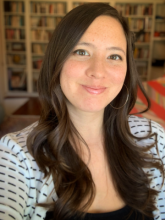
Jennifer Young
Faculty Mentor:
Holly Tabor
Asian Americans are often overlooked as racial minorities in the US, and during my time as a postdoc at the Stanford Center for Biomedical Ethics, I've made it my mission to dismantle the model minority myth that pits people of color against each other. The invisibility of Asian Americans is due in part to broader exclusions, but also partially due to Asian Americans being unwilling to partake in difficult conversations. I hope that my work empowers people to speak up against anti-Asian hate, but also pushes Asian Americans to challenge racism within our own community and towards other racial/ethnic groups.